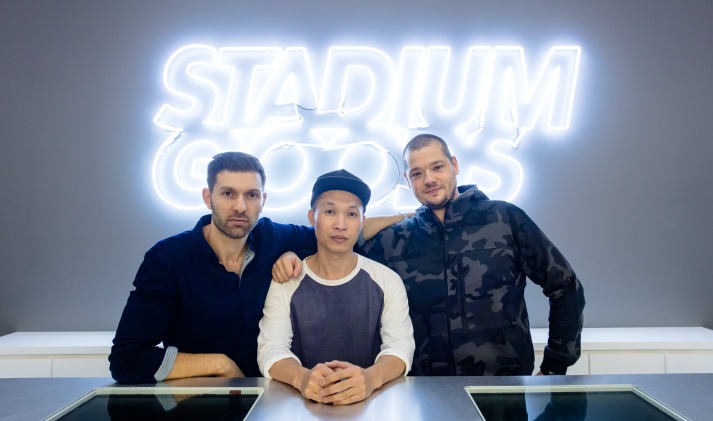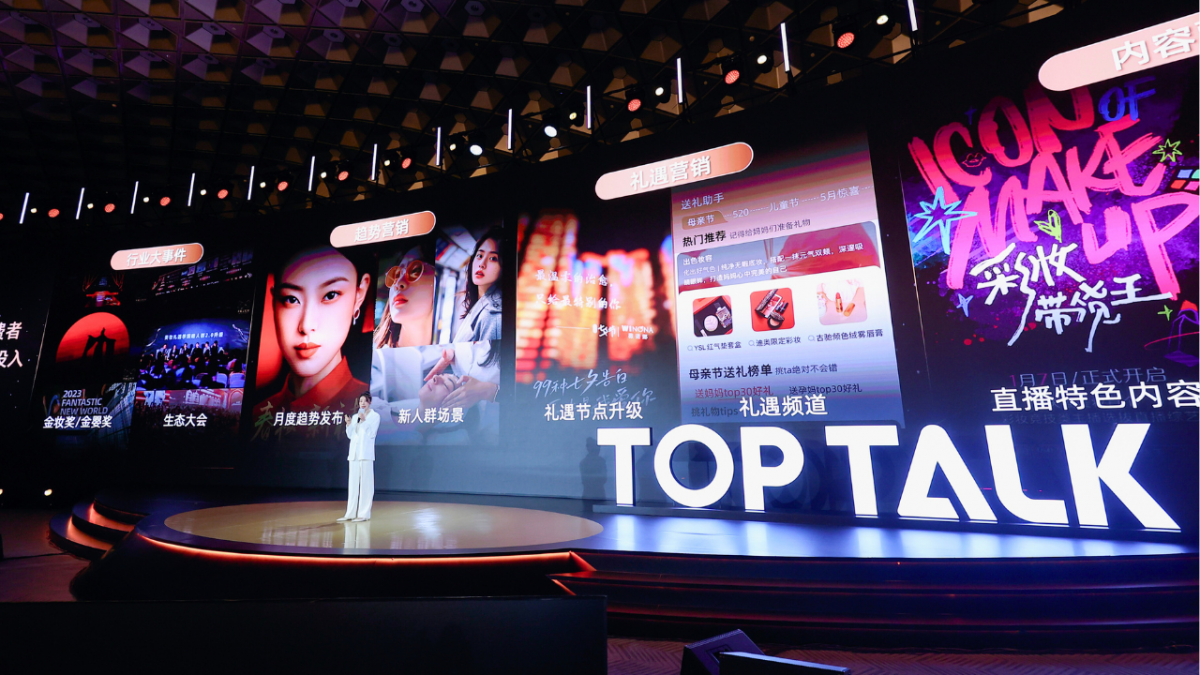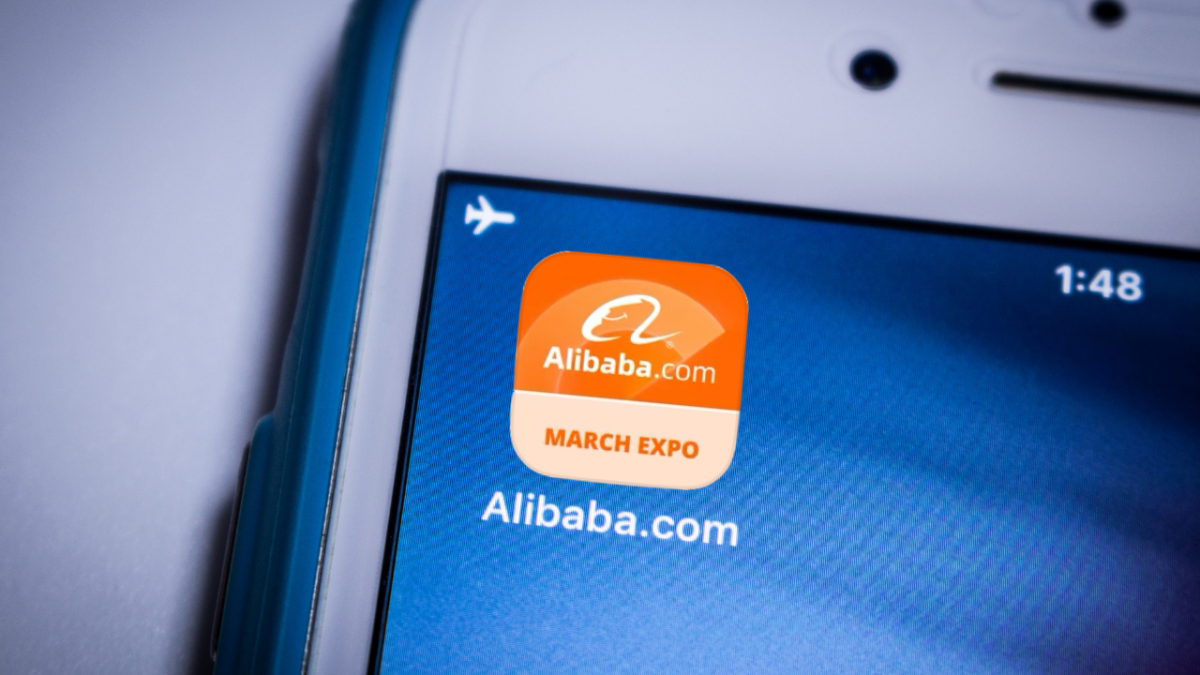
Sneakerheads of China, rejoice.
New York-based Stadium Goods, a retailer and marketplace in the multibillion-dollar collectible sneakers industry, has launched a store on Alibaba’s cross-border e-commerce platform Tmall Global.
“We believe together Tmall Global and Stadium Goods will offer sneaker enthusiasts throughout China the most premium level of customer experience and authenticity for the Chinese consumer,” John McPheters, Stadium Goods’ co-founder and CEO, said in a release. (McPheters is on the right in the above photo, followed by Chief Marketing Officer Yu-Ming Wu and co-founder Jed Stiller in the middle and left, respectively.)
The company opened for business just last October, launching a website to handle online orders and a brick-and-mortar location in Manhattan to allow for in-store purchases. Stadium Goods also has what it calls a Market Center around the corner from the retail outlet where sellers can bring their sneakers for appraisal and authentication.
In an interview ahead of Thursday’s announcement, McPheters admitted that the push into China—Stadium Goods’ first move overseas—was a bold move for such a young company. But “our eyes are on scale,” he said.
For those unfamiliar with the subculture, sneaker collecting is on par with any other collectors’ obsession, whether it’s comic books, baseball memorabilia or, even still, vinyl records. Typically, the shoes come from the worlds of basketball, hip hop and skateboarding, with globally recognized names such as Jordan, Kobe, Lebron and Kanye attached to them. To sneakerheads, as these dedicated fans are called, the best kicks are a form of art—and they’re willing to pay top dollar for them.
That obsession has helped grow the collectible sneakers economy to $1.2 billion in the U.S., the world’s largest market, and $6 billion worldwide, by some accounts. Companies like Stadium Goods have stepped in to facilitate sales between those looking to unload anything from a Nike Air Jordan 12 Retro DB ($9,500) to a suede Adidas Stan Smith ($95) and the industry’s very eager buyers. Otherwise transactions take place at conventions or on C2C e-commerce sites.
China is a part of this phenomenon. Last year, then-NBA MVP Stephen Curry of the then-NBA champion Golden State Warriors used a media tour stop in Beijing to release an early limited edition of his second signature shoe for Under Armour. And given the sneaker-collecting market is global and the community is connected online, the interest in specific styles in China is exactly the same as that in the U.S., which means the level of demand is similar as well, McPheters said.
Still, Japan is a more mature and more widely recognized hub for sneaker culture in Asia, if not globally. Therefore, it may have made more sense in some respects for Stadium Goods to target that market first. However, McPheters said it was China’s growth potential that prompted the launch on Tmall Global.
“Within China, there’s such a desire to get these products that the path forward was very clear,” he said.
Stadium Goods got a taste of just how strong that desire was during its first two weeks in business. A Chinese shopper walked into the Manhattan store and paid $10,000—in cash—for about 50 pair of Nike Air Jordans, which were purchased for resale back in China. Similar Chinese dealers have made appearances at the store since then, and Stadium Goods regularly fields questions from Chinese shoppers looking to purchase through the site.
But in order to tap the China market, Stadium Goods needed to find a way to conduct these transactions on its own, as well as find operational and logistics support that it didn’t currently have. The company also needed to build brand recognition so Chinese consumers would trust and purchase from a virtual unknown.
“There’s no way to do it through our own site as easily as we can through Tmall,” McPheters said.
The approval process for admission to the Tmall Global platform is strict. McPheters pointed to a number of requirements Stadium Goods had to meet in order to join, not least having the company’s trademarks in order—which can take as long as two to three years in the U.S. Tmall’s insistence on the trademarks meant Stadium Goods had to delay its application for three months to find ways to expedite that trademarks process before pushing forward again.
“That vetting process creates a barrier [to entry], you really have to earn your place on Tmall,” McPheters said. “If it was just green light go, it wouldn’t be as meaningful to us.”
The new flagship store started with a thousand pairs of Stadium Goods’ near 6,000-pair catalogue of sneakers, all at RMB 2,000 ($300) or under. The rest of the company’s inventory, which contains some shoes worth many thousands of dollars, will go up in the coming weeks. McPheters said the plan was to target consumers at all levels of spending power, from the country’s wealthy elite to the larger middle class.
“We have items for people at every price point,” he said. “It’s not pure affluence that we’re targeting.”
Of course, in a market as rife with fakes as sneaker collecting has been known to be, authentication is all important. Stadium Goods has a team in New York that’s been weeding out counterfeits for 20 years, according to McPheters, and they know what to look for. “Stitching is so important,” he said. They also work hard to keep pace with the increasingly sophisticated ways that counterfeiters are trying to game the market.
“If anything is even slightly off, we won’t take it,” McPheters said.




